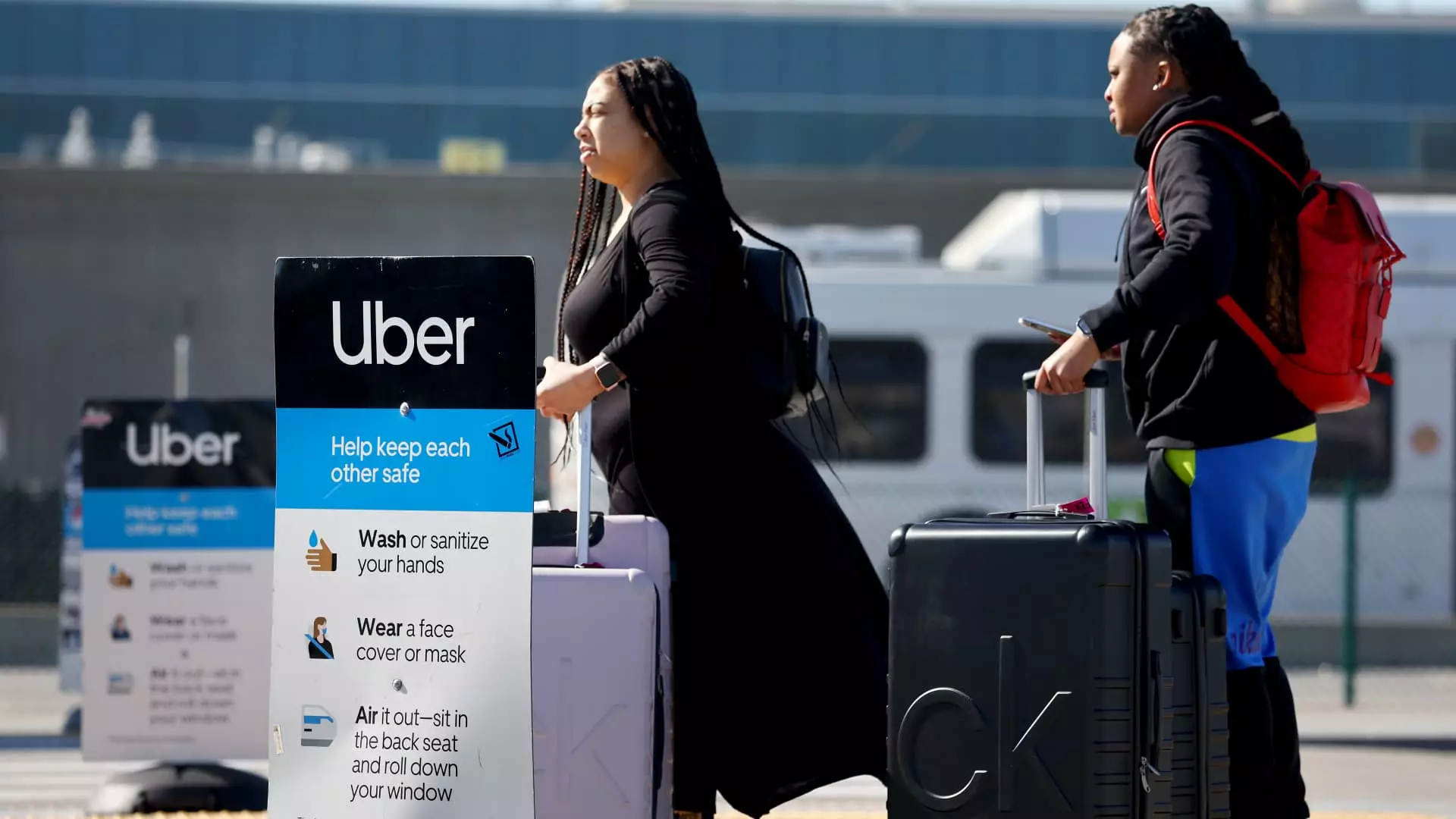Delta Air Lines has made significant waves in the transportation industry by announcing a new partnership with Uber, marking a pivotal moment as it concludes its eight-year alliance with Lyft. This innovative collaboration aims to enhance Delta’s SkyMiles loyalty program by enabling members to earn miles on Uber rides and Uber Eats orders. As the travel industry rebounds and more passengers take to the skies, this partnership demonstrates Delta’s commitment to providing seamless travel experiences that integrate various aspects of the journey.
With the new structure in place, Delta SkyMiles members will have the opportunity to accumulate miles in appealing increments. For every dollar spent on UberX rides to and from airports, members will accrue one SkyMile. Premium rides such as Uber Comfort and Uber Black will yield two miles per dollar spent, while Uber Reserve trips offer the most lucrative reward at three miles per dollar. Additionally, members can earn one mile per dollar on Uber Eats orders exceeding $40. This multifaceted approach is not just about earning points; it is about amplifying customer engagement and loyalty by providing tangible benefits directly tied to their travel needs.
Although Delta has not specifically articulated the reasoning behind its decision to switch from Lyft to Uber, the transition seems to align with the airline’s broader economic strategy and partnerships. Notably, Delta’s credit card partner, American Express, offers cardholders rewards for Uber services, suggesting a potential business synergy that may have influenced the decision. Additionally, Delta anticipates generating substantial revenue from this partnership, with projections of approximately $7 billion in earnings from American Express in 2024 alone, alongside a long-term goal of achieving $10 billion annually.
This change reflects a trend where airlines and ride-sharing companies recognize the need to create mutually beneficial alliances that resonate with their respective customer bases. Delta has also formed partnerships with other major brands such as Starbucks, Hertz, and Ticketmaster, further enhancing its loyalty program and expanding its ecosystem of travel-related services.
For customers currently using Lyft and who have linked their accounts to Delta, the transition may cause some concern regarding the impact on their accumulated miles. Delta has assured its members that they will continue to earn miles through Lyft until April 7, allowing a period for adjustment. The airlines have stated that customers will receive further communication detailing the transition. Such transparency is commendable as it aims to maintain customer trust and minimize disruption in their loyalty rewards.
However, Lyft has made its own statements regarding the end of its partnership with Delta. The company emphasized its intent to collaborate with other major brands, such as Alaska Airlines and Hilton, showcasing its adaptable strategy. As competition among ride-hailing platforms remains fierce, Lyft aims to redefine its value proposition by aligning more closely with entities that are perceived as more actively engaged in evolving consumer expectations.
The competitive landscape between ride-hailing services and traditional airlines is rapidly transforming. Uber’s claim of having over 161 million monthly active users highlights the sheer scale at which it operates compared to Lyft’s 24.4 million. This steep disparity emphasizes the strategic advantage that Delta gains by partnering with a more prominent player whose extensive reach may attract a broader audience of frequent travelers.
Additionally, Uber’s recent expansion into shuttle services, such as its offering at LaGuardia Airport, indicates a strategic pivot towards servicing airport transportation needs more comprehensively. As both Uber and Delta embrace technology-driven innovations, including Delta’s introduction of an AI-powered assistant in its app, they aim to redefine the future of air travel experiences.
As Delta Air Lines forges this new partnership with Uber, the implications extend beyond merely providing transportation options; it signals a shift towards integrating travel experiences with loyalty incentives in a way that enhances consumer engagement. With the travel industry experiencing a resurgence, this collaboration holds the potential to redefine how travelers think about airline loyalty programs. As both companies continue to innovate, the future landscape of air travel could be shaped by partnerships that prioritize seamless customer experiences and meaningful rewards. This is just the beginning of an intriguing journey that couples two powerful brands in the pursuit of customer satisfaction and loyalty.


Leave a Reply